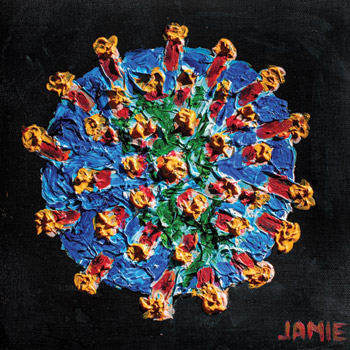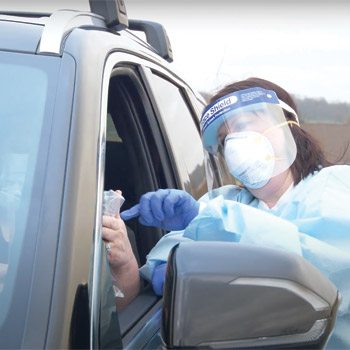The devastating trifecta of 2020: Is there any hope?
Physicians facing crises of a pandemic, economic losses, and social unrest should offer hope to patients as they are treated for the consequences of these and other ailments.
In the last three months, our country and world have seen the devastating trifecta of:
- a viral pandemic, the likes of which we have not seen since 1918, followed by
- economic disasters, the likes of which we have not seen since the 1930s, and most recently,
- another unarmed black man murdered at the hands of law enforcement, resulting in worldwide protests against racism, the likes of which we have not seen since the 1960s.
These three life-changing events have impacted us all in unique and powerful ways, but none so much as people of color, who have borne the brunt of COVID-19 illness, its accompanying economic losses, and the systemic and structural racism present throughout our societal constructs, including health care, our economy, and law enforcement.
You may have heard the saying, attributed to quality improvement expert W. Edwards Deming, PhD, among others, that “Every system is perfectly designed to get the results it gets.” And as Nirav Shah, MD, MPH, MACP, commented in his recent video lecture to ACP, “We have a perfectly designed $3 trillion health system.”
Clearly, we in the United States are not getting our return on investment (ROI) in health care. Despite over 17% of America's gross domestic product going to health care, we do not have better outcomes and rank last or near last in access to care, administrative efficiency, equity, health care outcomes, and other quality indicators of public and population health.
The College has offered solutions in our New Vision for the U.S. Health Care System, including major investment in primary care, public health, and focus on prevention, which would give us a much greater ROI. As physicians, we often take the oath of Hippocrates or Maimonides to first do no harm, uphold professional ideals, respect the sacredness of life and death, and apply ourselves to continual education and training.
Our law enforcement and criminal justice systems are also structurally designed to get the results they are getting, including inequitable application of the law, use of deadly force, and the highest incarceration rates in the world (717 per 100,000), with a disproportionate number of black, brown, and indigenous people overrepresented in the prison system. Of course, crime and its punishment have much to do with the many societal ills of poverty, education, health care, socioeconomic factors, and structural racism.
Members of law enforcement are often called in as the first responders to myriad difficult and life-threatening situations, frequently involving domestic violence, mental illness, and substance abuse. Our society has failed them by making little public investment in the appropriate care of mental illness, substance abuse, and family and children's services. In fact, law enforcement and the criminal justice system could be seen as the default providers. As a society, we have designed these systems to get these results. Like physicians, police officers also take an oath to protect and defend the population they serve and to be accountable for their actions. We expect them to have the right training, education, and protection to respond appropriately.
So, is there hope for our nation as we process and confront directly the trifecta of societal pain and suffering we have seen since March? I truly believe that there is hope, but hope is not a strategy. It is a feeling, a belief that something can be better, that something can be changed, that we are not doomed to how things are now. President Franklin D. Roosevelt told the nation during the Great Depression, “We have always held to the hope, the belief, the conviction that there is a better life, a better world, beyond the horizon.”
But hope must translate into action. Otherwise, it remains just a feeling with no change, nothing to make it valid. If there is no hope for something more or better, then what do we strive for? We can believe that things can or will be better, but we must use our God-given talents and our education and training to make things better.
So how can we as internal medicine physicians offer hope to our nation? As physicians, we can always offer hope to our patients, as they live with both acute illness and chronic disease but also as they die. With the COVID-19 pandemic, our public health physicians (mostly internists) have given us hope and helped us understand and implement social distancing and the wearing of masks to absolutely decrease the deadly impact of COVID-19. As physicians, we can offer hope for a vaccine and hope for effective treatment. We have hope, because we have knowledgeable, well-educated, diligent physicians and scientists working hard every day to create a COVID-19 vaccine. We also have hope for a thoughtful understanding of current drugs and the creation of a cocktail of multiple medications to combat and effectively treat this disease.
We have hope for our economy despite grim losses of jobs and livelihoods, and with them health insurance, which is the part of the economy we can fix. As internal medicine physicians, we have hope for a better health care system that provides access to high-quality health care for everyone in our country that both they and the country can afford. We have that hope in part because of ACP's bold vision. We can take decisive action with better legislative and regulatory options at the state and national level. Americans have suffered enough in this perversely incentivized health care system. We have hope because we have a plan. Let us begin to implement it.
We also have hope for change within our law enforcement system that will address structural biases that have long existed. As in health care, there are also ways to restructure law enforcement; think community policing, crime prevention, training in de-escalation. In May 2015, the President's Task Force on 21st Century Policing published its final report, recommending key action items, in detail, organized around six pillars:
- building trust and legitimacy
- policy and oversight
- technology and social media
- community policing and crime reduction
- officer training and education
- officer safety and wellness
We must now work to more fully implement that plan and continue to adjust it based on the results we get. We can have hope, because there is finally tremendous, overwhelming, and very diverse support for a better, restructured, and more accountable law enforcement system. Just as important, we as a society must invest in appropriate intervention and treatment of mental illness and substance abuse.
In summary, we need implementation of the College's new vision of an inclusive, equitable health care system that provides access to affordable, quality health care and invests new money in primary care and public health. We need a new vision for an inclusive, equitable economy that offers abundant opportunities and needed assistance to create the American dream for those who start with many strikes against them. We need to implement a new vision of an inclusive, equitable law enforcement system that creates public safety for all and public accountability in all our communities.
In another step forward, ACP released a policy statement on June 19 aimed at addressing racism and health in the United States and offering specific suggestions for ways to address systemic racism throughout our society.
When physicians, other health care workers, and first responders, especially those in law enforcement, are willing to put their lives on the line daily for the communities they serve, we must make sure we are recruiting and supporting all of them with excellent education and training that evolve and improve with experience.
What works for all people makes us a nation not only better but more prosperous, more desirous, more willing to lay down our lives for one another. Let us not fear the adversity of the 2020 trifecta, for without these adversities, there would be no reason for hope. Archbishop Emeritus Desmond Tutu of South Africa said, “Hope is being able to see that there is light despite all of the darkness.” Jeremiah, the Old Testament prophet, reminded the children of Israel while in captivity in Babylon of God's declaration, “For I know the plans I have for you, plans to prosper you and not to harm you, plans to give you hope and a future.”
I have a hopeful vision for a better future, and I hope you do too. But our hope cannot be just a nebulous, happy thought. It must be followed by a visionary action plan in our health care system, economy, law enforcement, and all societal institutions. As internists and as the American College of Physicians, let hope, vision, and action begin with us in all our areas of expertise, leadership, and influence. Let us as the internal medicine physicians of this country, and the world, be a force for good, and offer hope and a plan to get us all to a better future. Who better than the largest number of specialty physicians in the world?




